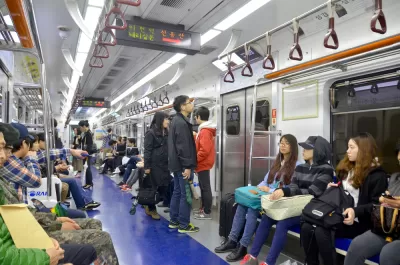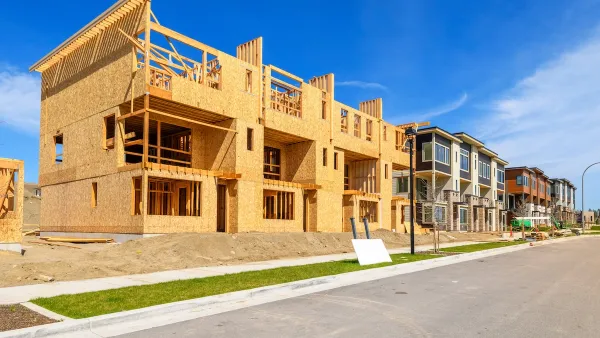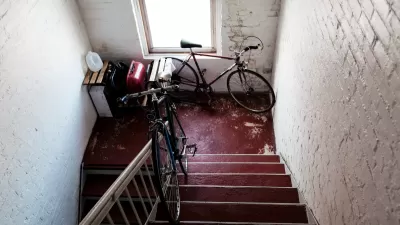South Korea's capital enjoys better stations and more complete coverage from a train system that gets less of its money from government subsidies and charges lower fares.

"[A] typical Seoul subway station is equipped with amenities and an attention to detail unknown to most American cities," Kelly Kasul claims in an article for Mic. The train stations are lively and pleasant, passengers can browse an underground bazaar: flower stands, convenience stores, jewelry kiosks, shoe bins and people in aprons cooking hot street food, such as rice rolls or spicy fish cakes," Kasul reports. But the trains themselves are also more accommodating, easier to navigate and exceptionally comfortable. "The same map is often visualized in different ways, so that even the most hopeless navigator can find their path. And once on the train, passengers are still able to get cell service and Wi-Fi, in addition to enjoying an air-conditioned climate in the summer, heated seats in the winter and a lively jingle that comes on to announce transfer stations," Kasul writes.
High ridership rates for the city's trains means that while the fares are cheaper (about $1.10 one way) than America cities like New York, Chicago, or Boston, the system doesn't need the level of government subsidy that those cities' train systems require.
FULL STORY: The future of transportation is in Seoul, South Korea. Americans Should Pay Attention

Maui's Vacation Rental Debate Turns Ugly
Verbal attacks, misinformation campaigns and fistfights plague a high-stakes debate to convert thousands of vacation rentals into long-term housing.

Planetizen Federal Action Tracker
A weekly monitor of how Trump’s orders and actions are impacting planners and planning in America.

In Urban Planning, AI Prompting Could be the New Design Thinking
Creativity has long been key to great urban design. What if we see AI as our new creative partner?

Florida Seniors Face Rising Homelessness Risk
High housing costs are pushing more seniors, many of them on a fixed income, into homelessness.

Massachusetts Budget Helps Close MBTA Budget Gap
The budget signed by Gov. Maura Healey includes $470 million in MBTA funding for the next fiscal year.

Milwaukee Launches Vision Zero Plan
Seven years after the city signed its Complete Streets Policy, the city is doubling down on its efforts to eliminate traffic deaths.
Urban Design for Planners 1: Software Tools
This six-course series explores essential urban design concepts using open source software and equips planners with the tools they need to participate fully in the urban design process.
Planning for Universal Design
Learn the tools for implementing Universal Design in planning regulations.
Gallatin County Department of Planning & Community Development
Heyer Gruel & Associates PA
JM Goldson LLC
City of Camden Redevelopment Agency
City of Astoria
Transportation Research & Education Center (TREC) at Portland State University
Jefferson Parish Government
Camden Redevelopment Agency
City of Claremont





























